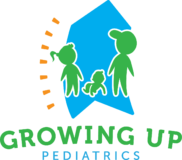It is relatively common for children under 2 years old to bite. Being common makes it no less upsetting, especially if you are the child’s target or your child’s child care provider is threatening to discharge the child from their care. There are many reasons for biting, most of them related to growth and development, including lack of language/communication skills and lack of self-control. Some children are teething or merely exploring what will happen when they bite.
Preventing biting –
- Have developmentally appropriate expectations that are specific to your child and ensure other family and childcare providers do the same.
- Give simple instructions and model expectations.
- Teach your child words for limit setting – no, stop, that is mine.
- Teach your child to identify emotions and use words for them.
- Develop consistency and routines, especially for meals and bedtime.
- Offer other stress/tension relieving activities – playdough, bubbles, wiggling/dancing, soft music, yoga.
- Offer other items he can bite safely – teething rings; frozen wet cloths.
- Ensure plenty of active playtime.
Helping infants learn not to bite –
Infants learn about the world through exploration, especially with their mouths. When an infant bites, calmly and firmly state “no” or “no biting”. Put child down away from you (set him on the floor or playpen and step away). Be consistent. Avoid giving too much good or bad attention, as this may reinforce the behavior.
Helping toddlers learn not to bite –
- Identify your own emotions about your child biting. It is normal to feel angry, worried, frustrated… Find a way to be calm.
- Become a detective and identify trends for when the behavior is occurring. What happened just prior to biting? Who was with child? Who is caring for child at the time? Is the child overstimulated [loud, bright, lots of movement in environment]? Frustrated? Angry? Tired? Excited? Anxious? Is it happening during a transition time? Is the child being asked to do something above their developmental level?
- Monitor for early signs that your child will bite and intervene early by redirecting, distracting, and encouraging the use of words.
- Have consistent rules and routines among child care providers and home.
- When a biting incident occurs, calmly, firmly and seriously state “No biting. Biting hurts.” Then ignore the child who bit, as extra attention may reinforce the behavior. Focus on the child who was bitten by offering comfort and loving words. Then, talk to the child who bit – Restate that “biting is not allowed”. Model the words/emotions, so your child can learn to use words, instead of biting. Example: “Your brother took your toy. That made you mad. No biting.”
- Model simple, direct communication with your child. Ex: Tell your sister you are still playing with the toy; Tell your friend you don’t like it when he gets so close; tell me to stop if you don’t like it when I tickle you. Model appropriate ways of asking for toys and such – Ask your friend “may I use the truck”?
- Reinforce positive behaviors with words and actions.
What never to do –
- Bite the child back as punishment or to teach them what it feels like.
- Use physical punishment. This does not teach the child discipline and self-control.
- Yell or shame your child. If you become angry, step away to calm yourself before addressing the situation.
- Label or describe your child as “biter”. This may intensify the behavior.
Other resources you may wish to read:
https://www.zerotothree.org/resources/232-toddlers-and-biting-finding-the-right-response
https://www.naeyc.org/our-work/families/understanding-and-responding-children-who-bite
https://ccids.umaine.edu/wp-content/uploads/sites/26/2009/12/biting120309.pdf
https://kidshealth.org/en/parents/stop-biting.html







